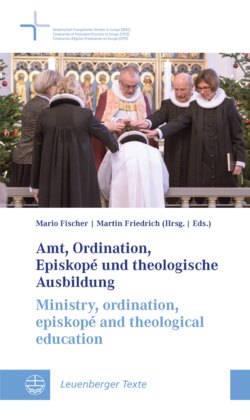Читать книгу Amt, Ordination, Episkopé und theologische Ausbildung / Ministry, ordination, episkopé and theological education - Группа авторов - Страница 20
На сайте Литреса книга снята с продажи.
1.5.2.1The criterion of conformity with Scripture
Оглавление25. The criterion of conformity with Scripture is not to be confused with a formalistic use of the Bible, for which a strict identification of the canonical biblical text with the Word of God is fundamental. A theological and hermeneutic distinction needs to be made between Scripture and Word of God. The biblical writings are the written deposit of the voice of God, formulated and witnessed by human beings. These scriptures foundationally and sufficiently bear witness to the living Word of God, which is Jesus Christ. It is the work of God’s Spirit that this witness of the Holy Scripture is given new life, as the Word is publicly proclaimed and where people read, meditate and interpret Scripture for one another and celebrate the sacraments. Thus the Word of God, attested in Holy Scripture (that God has spoken in history in a living and saving way), becomes a living reality in the present day.
26. According to the theological insights of the Reformation only the Holy Scripture is the criterion for the doctrine of the church. The so-called Reformation principle of Scripture is not focused on the formal priority of the Bible over against church tradition or other sources of theological knowledge, but on the prior place of the gospel as the message of Jesus Christ, the salvation of the world. The Reformers expressed the right understanding of this in the doctrine of justification (cf. LA 7 and 8). The authority of Scripture is grounded in and also limited by the gospel, which bears witness to the saving action of God. Time and again, Scripture needs to be interpreted by the church and its confessions, through theological scholarship and through the Bible reading of individual Christians. But it is Scripture itself which interprets itself in this ongoing hermeneutical process, because every single interpretation has to be proved on the text of Scripture as a whole.
27. The criterion of Evangelical (Protestant) theology (i.e. theology in accordance with the gospel) is how far the present church life and faith’s existence is determined by Scripture applied to the time and not conversely that the interpretation of Scripture is determined by the general religious or political spirit of the time. That also applies in particular to the understanding of ministry, ordination and episkopé.
